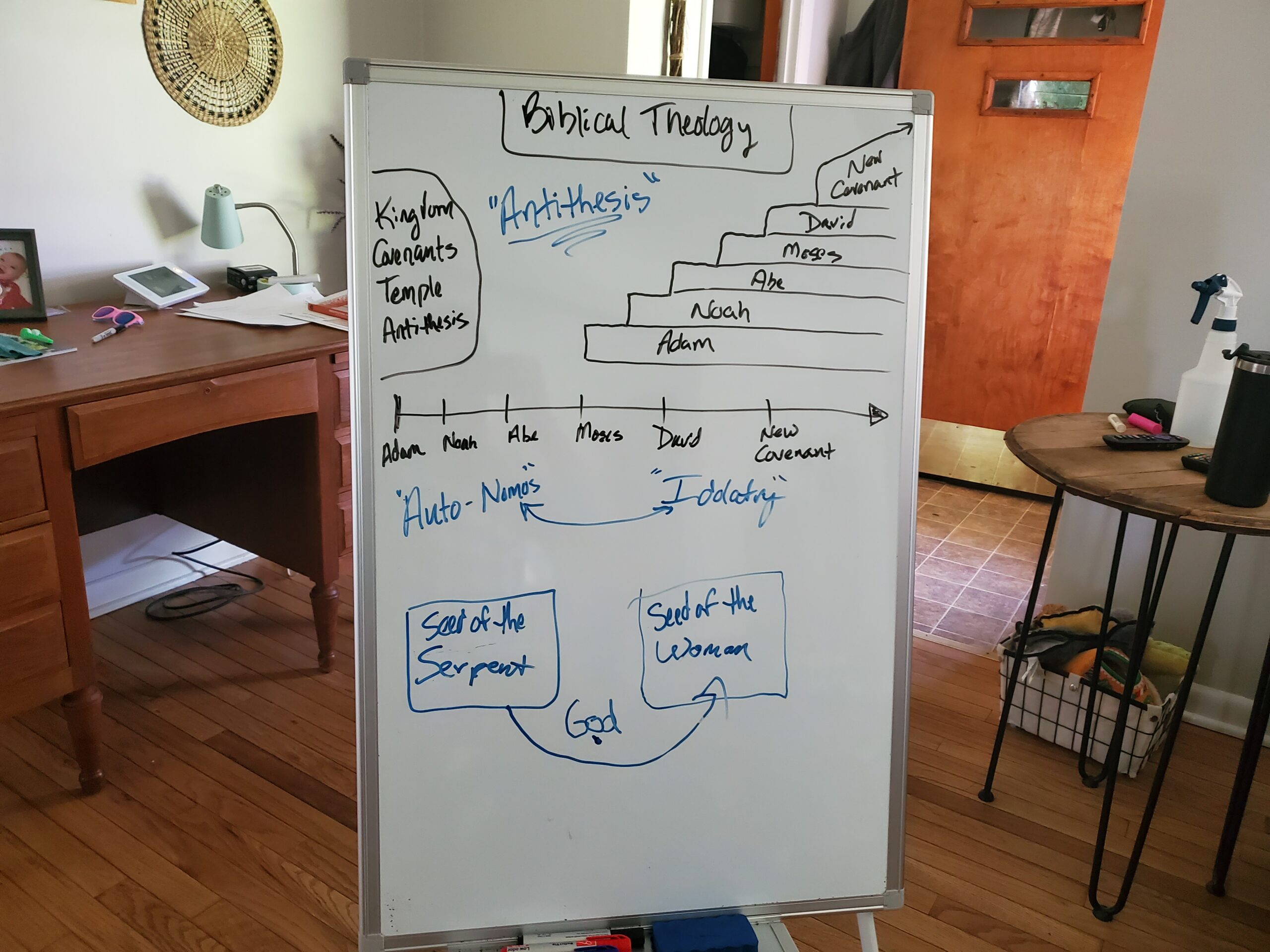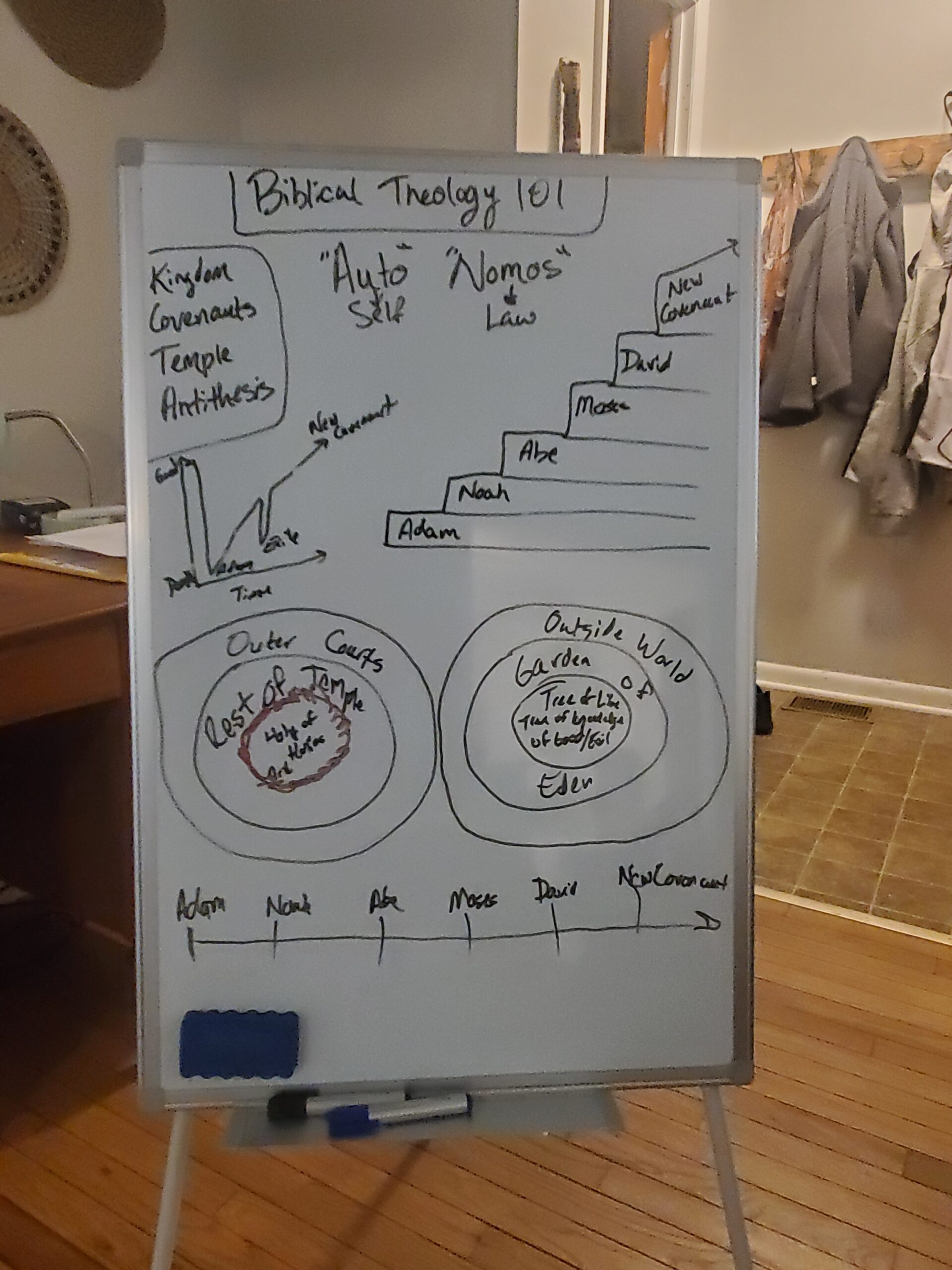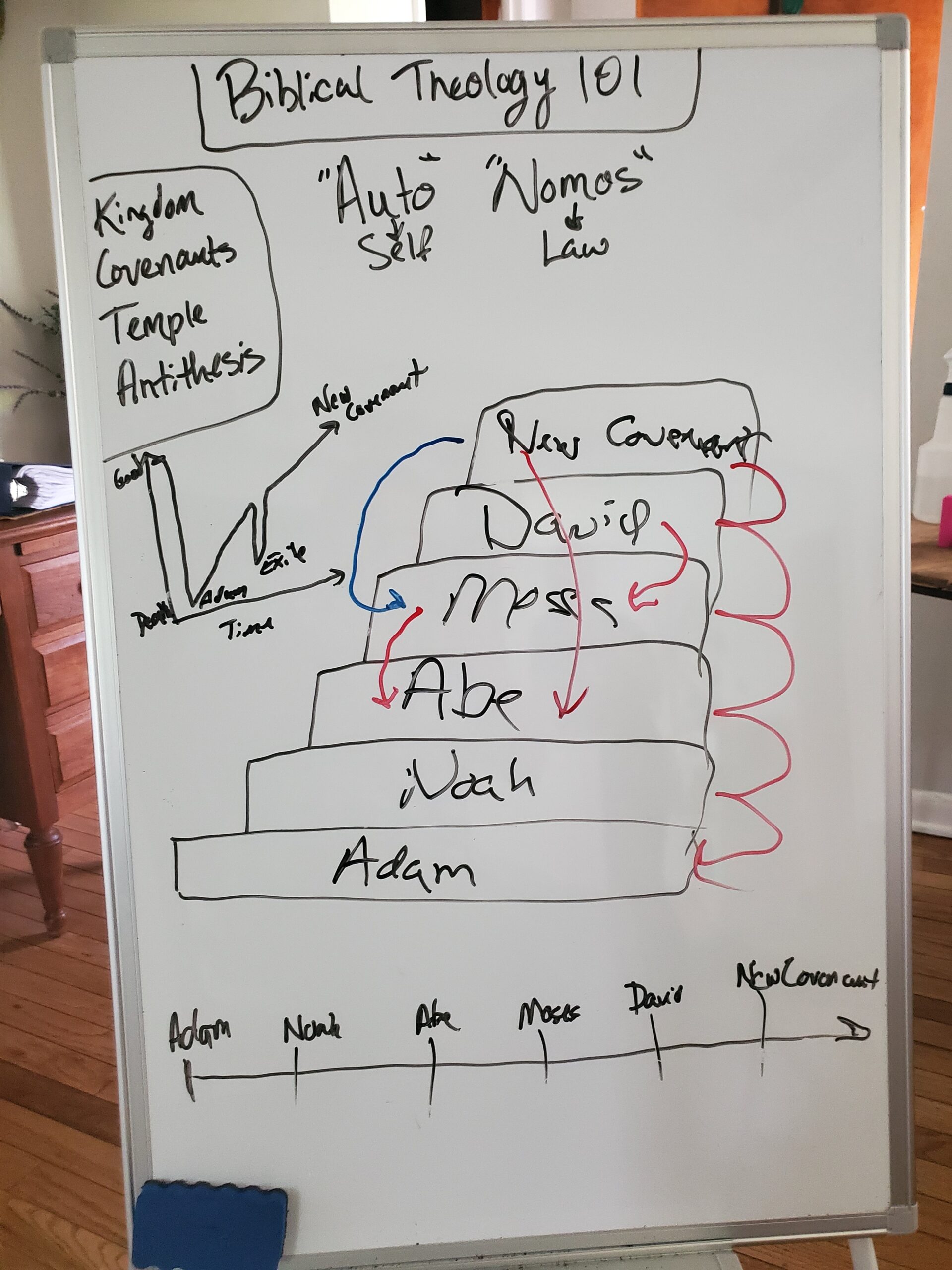Faith is such a commonplace word in the Christian realm and very misunderstood. On top of that, many Christians advocate for “blind faith” which is to follow something you can’t really know- just take the “leap of faith” as some would say. I would say Scripture does not lend itself to this position. The Christian faith is not a “blind faith,” nor is it an illogical faith. I agree with RC Sproul, Christianity is a thinking faith: there is a consistent logical flow (aka, follows the rules of logic) behind Christianity. How does that relate to faith? You can’t see God, how is it not blind? Let’s explore this a bit more.
What is “Faith?”
Faith is not just believing in God. Faith, in the New Testament, comes from the Greek word “Pistis” which could be stated as “divine persuading” to see and love God for who He is. Let’s look at an example, Ephesians 2:8 ESV: “For by grace you have been saved through faith. And this is not your own doing; it is the gift of God…” How are you saved? By grace through faith. Is faith something that can be mustered up? No. It is a gift of God. So this is super important, the first thing to understand about faith is that it is a gift from God and not something that is just willed by us. This is the absolute starting place: God is the one that gives us the ability to even begin to see Him for who He is (John 6:44).
Blind faith
But wait Austin, what about the verses that state we walk by faith and not by sight and that faith is the substance of things we can’t see (2 Corinthians 5:7, Hebrews 11:1). Those are completely true, but they’re not a “blind faith.” Those verses are believing in a reality that is known to be true, in a way that we have been “divinely persuaded.”
I can’t tell you how many people I’ve meant recently who claim to believe in Christianity yet refuse to know God through His Word. They claim that “the Bible is too hard to understand” but that they just go off experience. They say: I know God exists because I’ve seen miracles; I know God exists because I see prophecies coming to pass in the world because I’ve been told they’re somewhere in the Bible; I know God exists because I had a family member get off of drugs; and on, and on, and on… Experience is not enough to believe and be persuaded that God exists. Our emotions and minds can be completely tricked. Has anyone ever been to a magic show? Other religions claim prophecies, miracles, and healings. Experience is not enough to convince us to believe in God. Experience does not mean heart change. That is blind faith. That is an illogical, inconsistent faith.
I think it would be safe to say that Christianity is the most contested faith in the world, meaning, you don’t see the backlash against other world religions and debating against the tenants of other world religions in the academic sense as you do with Christianity. Just think about that for a minute: most other world religions give a creation account, yet academic scholars are not debating them on their stance… Fruit for thought. Evidently, scholars and philosophers find it worth their precious time to debate these “primitive” notions such as God and Christianity.
Illogical, and inconsistent Christianity only gives ammo to the world that rejects Christianity even more. Christians have the obligation to know their faith and to give a logical reason for their faith (Apologetics), as simple as it may be.
Knowledge
After a “divine persuasion” to see God and love God, how do we grow in faith? How do we keep from a blind, illogical faith? Know God, and know Him more deeply. However, this is not just about head-knowledge and accumulating facts to wield around to fire off at people (1 Corinthians 8:1); this is about a relationship with the Creator. How do we know God more deeply? Here are three methods that are all necessary:
- Through Scripture. God literally gave us a book that tells us who He is and who we are. To say we don’t want to read the Bible yet we want to know God is like telling me to do maintenance on a car, yet I’ve never seen under a hood before and then I was given a manual and I threw it away. To have Scripture is a sheer gift of God and is the very “breath” of God (2 Timothy 3:16-17), revealing His nature and character. Each time you read the Bible ask yourself, “what did this say about God?”
- Through Prayer. It’s not enough just to have an encyclopedia of facts about a person to understand them. How do we get to know people? We talk to them. My wife and I didn’t just write letters back and forth to learn who each other was when we were dating. We spent time together. We talked ALOT! The same goes for prayer. We need to spend time with God to learn Him. Make it a practice to intertwine prayer and reading Scripture- you will learn so much about God in this way.
- Through God’s People. We need people, we need the Church. The interesting concept in the New Testament is that God is not as much in a specific place, such as a temple or tabernacle, as in the Old Testament but is rather building His temple with His people (1 Corinthians 6:19-20). God’s people have God with them! We now learn who God is through His Word, through prayer, and through His people.
Conclusion
Let’s land the plane, how do we keep from the dangers of “blind faith?” First of all, we have to recognize that faith is a gift from God. Once God has called you to Himself, pray for faith. Pray to never lose your faith or slip in your faith. Pray that God keeps you close to Him. I believe this should always be included in our prayer life. But then after this, we know we have practical ways of growing our faith: reading Scripture, praying, and through God’s people. This is not a dogmatic/pious set of rules and laws to follow; we need these as Christians. We know that “doing more” religious activities doesn’t necessarily bring faith, so don’t start with a legalistic mindset.
Building a strong faith comes from knowing God. This gives a level of assurance to our faith based on evidence and in view of the alternatives that are at hand (almost like consent for a medical procedure). For instance, have you considered how dark the universe is once you consider the alternative of God’s existence? That life could truly be meaningless? That there is no hope? That we are just floating cosmic dust in a pointless universe? Pretty bleak.
This faith gives a certain level of predictability of God and His character. Although we will never fully know God entirely, we can know Him as He is revealed in Scripture. Faith is based on things we can’t necessarily see in front of us all of the time, but that does not mean it’s built on things we can’t know- we have a historically reliable textbook that reveals the acts of God throughout human history (the Bible). Scripture and the Christian faith is logical and non-contradictory. Build an intelligent, logical faith- not a “blind faith.”
-Austin
 Getting Job-ed
Getting Job-ed


